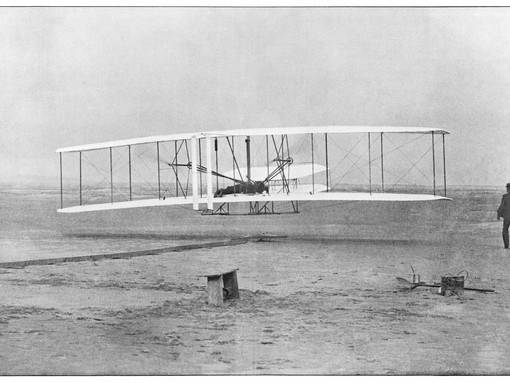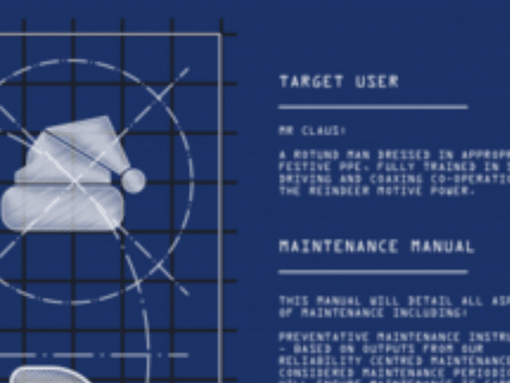
From fighter jets to project planning: Veteran Martin Goodwin on transitioning from the RAF to civilian life
Contents
- Talk to us about your career in the RAF
- Watch Martin’s interview below:
- For many veterans, this is a point in their life when they struggle to come to terms with what’s next for them. After so many years in the forces bubble, the civilian world can be challenging and confusing. What steps did you take?
- How have you found the transition into your new role?
- What does your day-to-day role entail?
- What are you enjoying most about your role and working at Waldeck?
- What advice would you give to someone looking to leave the forces and continue their career in a civilian role?
- What’s next for you?
Contents
“It’s utterly terrifying in one respect until you realise you have the skills to overcome the challenges. Be brave. Don’t hide your light under a bushel. You have hard-earned experience. Remember this: You possess many transferable skills, talents, successes, and ideas. You have ‘stuff’ that industry needs and/or wants. You may not know it. You may not realise it. But you do.”

Martin Goodwin is a Project Planner at Waldeck, part of the Morson Group. His career in the armed forces began at just 16, when with an enthusiasm for aviation, he joined the Royal Air Force. We spoke to Martin about his career with the RAF, rising through the ranks to become Flight Sergeant, and his transition from a military career to a civilian one – and crucially how his forces background has set him up for his current career.
Talk to us about your career in the RAF
I joined as a 16-year-old boy entrant, a dual-trade aircraft apprentice, in 1975. From being a child, I only really had one ambition; to work with aircraft and I presented myself to an RAF Careers Information Office (CIO) at the tender age of 13 to ask the drafter if he could give me a job! Throughout my fulfilling and rewarding career, I rose steadily through the ranks slightly ahead of my peers and in the early 2000’s was drafted, on promotion, into Defence Training. I left the Royal Air Force in October 2005.
Watch Martin’s interview below:
As you worked up the rank structure your knowledge and acumen grew exponentially. Manpower control and leadership (including being a responsible ‘father figure’ to your team), detailed aircraft systems knowledge, general service knowledge, project planning and control, and dealing with dynamic and ever-changing situations, usually under operational pressures. The project planning and control element often took the form of deploying aircraft away from your normal operating base. This would take months of detailed planning to ensure that you could correctly maintain, support and ultimately operate the aircraft to support the operational tasking.
Myself and my family moved from location to location every 2-3 years; some 13 stations in total. Each time I was learning new skills and expanding my horizons. I completed two 3-year tours in West Germany as an active member during the Cold War. We worked hard, played harder and were under no illusions that we, and our families, were under threat if the USSR attacked main-land Europe. I mostly worked directly with fighter aircraft on front line squadrons but also built and tested aircraft jet engines.
I also worked in England, Wales, and Kuwait on secondment as a part of the Kuwait Liaison Team due to my specific Hawk aircraft and engine knowledge. This sunshine tour was abruptly and catastrophically cut short by Saddam Hussain’s invasion of the Kingdom. I travelled around the world on detachments with the RAF and was lucky enough to fly, as a passenger, in many fast jets and other aircraft types over the years, the ultimate being a trip in a T5 Lightning from RAF Binbrook in 1984 where I joined the 1000MPH club low level over the North Sea before zoom climbing from 1,500 feet (at Mach 1.5) to 42,000 feet.

In the RAF training world, I became a ‘Train the Trainer’ Instructor. This entailed giving a new generation of Tri-Service Instructors an in-depth knowledge of delivery techniques.It was both extremely challenging and was equally rewarding. I was then re-posted to RAF Waddington and managed the technical maintenance school for the Sentry (AWAC) surveillance aircraft. In 2005 the Sentry maintenance contract was civilianised and that included the training element. I was offered, and accepted, the role as Training Manager with BAE Systems (as a sub-contractor to Northrop Grumman in their role as the contract prime). In 2017 BAE Systems left the contract and I was offered a TUPE transfer to Northrop Grumman. This role came to an end in late 2019 and I took a 2-year, fixed term, role in contract monitoring, supporting all aircraft flying from RAF Waddington in their Force headquarters. In early 2022, the Ministry of Defence financial leads in London refused an extension on cost grounds and after some 46 years I found myself no longer active in, or supporting, the RAF.
For many veterans, this is a point in their life when they struggle to come to terms with what’s next for them. After so many years in the forces bubble, the civilian world can be challenging and confusing. What steps did you take?
I gulped (hard), took breath, took stock and extensively updated my CV. This I forwarded to several recruitment specialists. One of the returns ‘matching my profile’ was for a Trainee Project Planner with Waldeck. I applied for the role, had an interview with Tim Leach and Will Green and was offered the job in fairly short order. I was flattered, pleased and determined to do a good job.
How have you found the transition into your new role?
Interesting, very challenging, dynamic, exciting. Utterly terrifying in one respect until you realise you have the skills to overcome the challenges: one at a time with guidance and support.

What does your day-to-day role entail?
At this moment in time: learning. Lots of it! I am new to the industry, new to the role, new to the main software I use in my primary role and new to a pure civilian environment. Some 10 months in and I have found my feet and know my way around most of the systems.I am still learning something new every day and I genuinely look forward to coming to work.
I currently maintain the P6 project planning tool to allow Directors, Associate Directors and Project Managers to have a holistic and detailed view of current, future and completed projects. This will include resource loading for Waldeck C&S personnel and direct liaison with Morson planning staff for information sharing. I’m responsible for supporting the accurate input of data into the PQL, a high-level project tracker, and production of a Microsoft Power BI dashboard for Director use.
What are you enjoying most about your role and working at Waldeck?
The people, The people and the people! I work with very understanding and empathetic superiors. I remain extremely impressed by the work ethic and professionalism of all team members I have come into contact with thus far. Being the wrong side of 60 years of age I have had to fully engage (and to a certain degree kickstart) my aging brain cells. This, whilst tiring, is hugely exciting.
What advice would you give to someone looking to leave the forces and continue their career in a civilian role?
Be brave. Don’t hide your light under a bushel. You have hard earned experience. You possess many transferable skills, talents, successes and ideas. ‘Transferable skills’ is an oft bandied around term. Remember this: You have ‘stuff’ that industry needs and/or wants. You may not know it. You may not realise it. But you do. Without being arrogant, firmly look someone in the eyes and politely inform them so. If you are of a more mature disposition look at any role interview as a professional meeting; though do carry out meticulous preparation. Talk to peers and superiors, use the internet (though this advice comes with the normal internet caveat… there is lots of duff gen online!). Don’t try and be an expert or you run the risk of falling flat on your face at interview but do relate anything of relevance back to your own experience whilst serving in the forces.

What’s next for you?
To learn my job fully and continue as an active, integral, and proficient team member. I’m currently working with the management team to fully understand the processes and procedures used by the company, with a view to driving in efficiencies to further enhance project support and thereby realising maximum profit. And, of course, to continue to have fun.
Morson Forces is Morson Group’s dedicated recruitment arm focused on securing skilled employment for ex-forces personnel, supporting the transition into civilian life and advising businesses on how service leavers can enhance their organisation. As an Ministry of Defence Gold Award holder, we have in excess of 2,500 ex-forces personnel and their partners from the Royal Navy, Army and RAF, working across projects in the UK and overseas.
With over 100 ex-forces recruiters on hand, we understand you. Get in touch: forces@morson.com, or click here to view our latest ex-forces friendly roles
You can also follow Morson Forces on LinkedIn here, and join our growing veteran’s community here
Contents
- Talk to us about your career in the RAF
- Watch Martin’s interview below:
- For many veterans, this is a point in their life when they struggle to come to terms with what’s next for them. After so many years in the forces bubble, the civilian world can be challenging and confusing. What steps did you take?
- How have you found the transition into your new role?
- What does your day-to-day role entail?
- What are you enjoying most about your role and working at Waldeck?
- What advice would you give to someone looking to leave the forces and continue their career in a civilian role?
- What’s next for you?
















